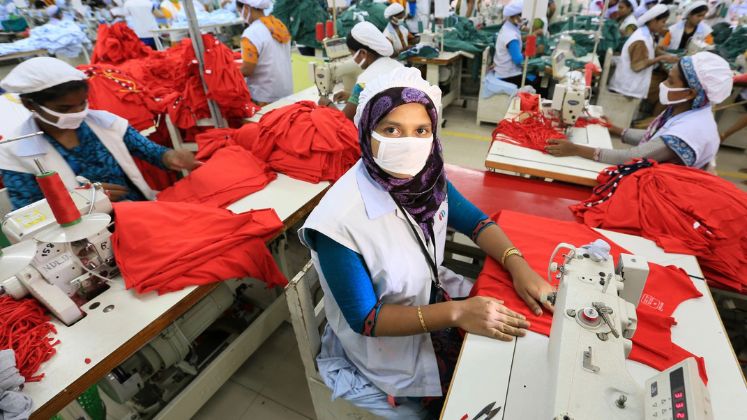
The Bangladesh Chamber of Industries (BCI) has raised concerns over the proposed national budget for the fiscal year 2025-26, warning that it could adversely affect the country’s vital textile and garment industries. The organisation, which represents key manufacturing sectors, expressed apprehension that the budget’s focus on revenue collection and adherence to IMF guidelines may undermine the competitiveness of export-oriented industries.
BCI President Anwar-ul Alam Chowdhury highlighted that the budget emphasises increased corporate and personal taxes, which could burden existing taxpayers and strain industries already grappling with rising costs.
The garment sector, a cornerstone of Bangladesh’s economy, is particularly vulnerable. The BCI noted that cash incentives for export-oriented industries, including garments, are being gradually reduced, risking a decline in export competitiveness. Additionally, VAT on cotton yarn and synthetic fiber yarn has been increased from Taka 3 to Taka 5 per kilogram at the production stage. Such hikes, especially amid the ongoing energy crisis, could lead to higher production costs and push industries towards increased yarn imports.
The organisation also expressed concern over rising duties and taxes on raw materials for steel and cement, which could further inflate costs in the housing and construction sectors. Moreover, the proposed budget’s increase of the turnover or transaction tax from 0.6 per cent to 1 per cent is seen as a potential threat to both small and large industries.
BCI emphasised that the increase in VAT on raw materials for large manufacturing industries would raise production costs, potentially hampering efforts to control inflation. The organisation called for a reconsideration of these tax hikes to prevent adverse impacts on the textile and garment sectors, which are crucial to Bangladesh’s export economy.
As the government prepares to implement the budget, industry leaders remain cautious about its implications, urging policymakers to balance revenue collection with the sustainability of key export industries.






